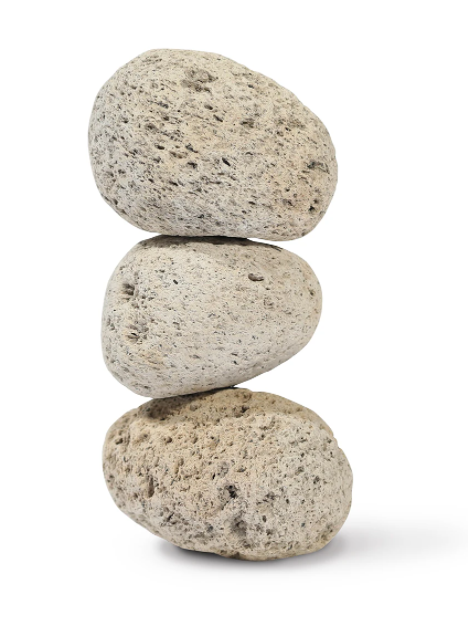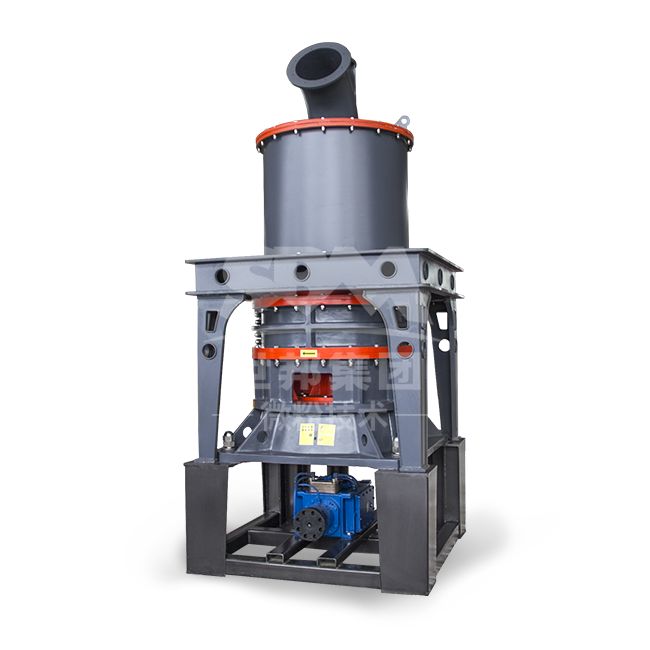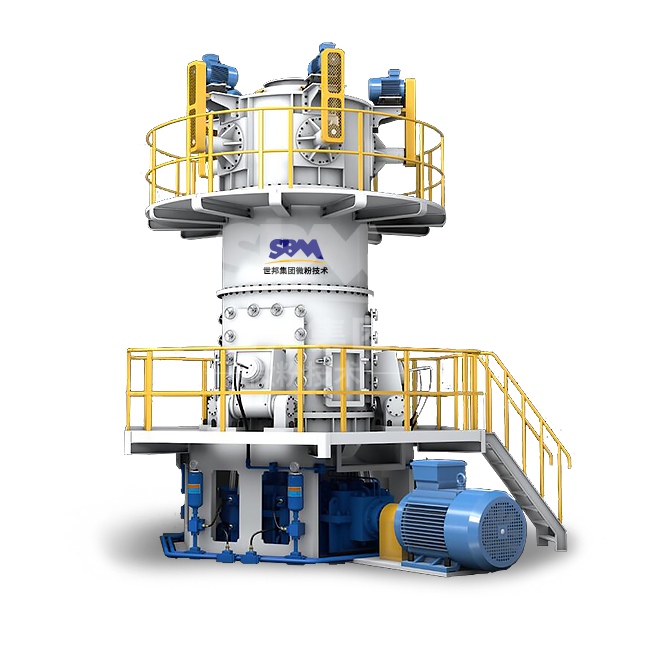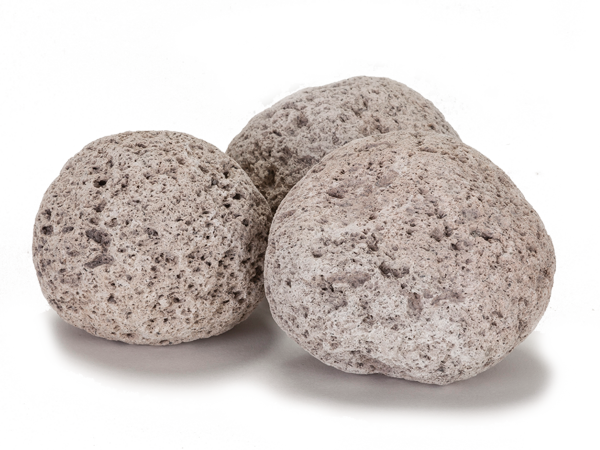The company's main products are HGM series micro pulverizer, superfine micro pulverizer, micro pulverizer, superfine pulverizer, pulverizer and matching hammer crusher, etc.
10/08/2021 admin
Pumice industrial powder grinder can grind pumice into a fine powder, and pumice powder can be used in many fields such as chemistry, industry, and construction. The pumice industrial powder mill includes an ultra-fine ring roller mill and ultra-fine vertical roller mill, which can grind pumice to 3000 mesh. In addition to grinding pumice, it can also grind more than 100 other non-metallic ores. Such as mica, carbon black, fly ash, vermiculite, marble, dolomite, and so on.

Pumice is a mineral formed by cooling magma after a volcanic eruption. Its main component is silica, which is usually porous rock.
Pumice is light in weight, high in strength, acid, and alkali resistant, corrosion-resistant, pollution-free, and non-radioactive, making it an ideal natural, green, and environmentally friendly product.
Pumice has a wide range of uses. The correct use of pumice stone can bring huge benefits to mankind. It contains a variety of trace elements, has medicinal value, and can promote people’s health. It can also green the environment and improve water quality.
Pumice stone is widely used in construction, gardening, textile industry, garment factories, garment, and denim garment washing plants, washing and bleaching plants, dyeing and finishing plants, and other industries. A pumice stone can also be used for skincare and foot care, and can effectively remove the residual stratum corneum on the skin.
What’s more, as traditional Chinese medicine, pumice stone has the effects of clearing the lungs and fire, resolving old phlegm, distilling water, and dredging leaching, and softening and dispelling nodules. It can be used to constrict the lungs due to phlegm heat, thick phlegm due to coughing and wheezing, painful urinary drainage, and scrofula.
Pure natural pumice can be crushed and ground to obtain pumice powder. It can be widely used in construction, textile, chemical, and other fields.
The production process of pumice ore powder:
Primary crushing: The pumice is roughly crushed into fine pumice materials through the crusher and stored in the storage bin.
Conveying: Then it is conveyed to the belt feeder through the hoist. Then it is evenly conveyed by the belt feeder to the main engine of the pumice industrial powder grinder.
Grinding: The finely divided pumice material is squeezed into fine powder by the grinding ring and the grinding roller in the grinding host.
Powder selection: The high-pressure wind generated by the fan blows the pumice powder through the screen on the top of the mill. Qualified pumice powder can pass, but unqualified pumice powder falls back into the grinding mill and is ground again until the fineness is qualified.
Collection: The pumice powder with the fineness up to the standard is sent to the dust collector through the air pipe, and then is loaded into the packaging machine by the discharge valve at the bottom of the dust collector.

HGM series ultrafine grinding mill can be used to grind pumice, talc, marble, dolomite, bentonite, carbon black, and other non-metallic ores.
The fineness of the finished powder can be adjusted freely between 300-2500 mesh.
The equipment has a small investment, small floor space, simple operation, and convenient maintenance, which can greatly save labor costs. In addition, it also has the advantages of high efficiency and long service life, etc.

CLUM series ultrafine vertical mills are widely used in chemical, industrial, construction, mining, and other fields. It can be used to grind non-metallic ores such as pumice, limestone, marble, dolomite, kaolin, and carbon black. The fineness of the finished powder can be up to 3000 mesh.
The equipment has high efficiency, high output, good powder shape, good powder sphericity, and higher fine powder content. Especially suitable for high-end white powder applications, such as papermaking.
Active functional filler
Mainly used in plastics, rubber, artificial leather, and other industries as functional fillers instead of light calcium carbonate. Can greatly reduce the manufacturer’s production costs and improve product quality. Used in plastic products, its strength is increased by more than 20%. It is used in the papermaking industry to replace talcum powder in the manufacture of newsprint, which has a higher degree of retention.
Purifying agent, adsorption carrier
Used in building filtration industry, glass, and ceramic manufacturing. It can purify the water quality, increase the oxygen ion content in the water, and disinfect the aquarium at the same time. Adjust the water quality, adjust the water with too high acidity or alkalinity to neutral, and stabilize the water.
Feed additives
Pumice powder has adsorption and ion exchange properties. It can absorb ammonia and fix nitrogen and delay the passage of nutrients through the digestive tract. Absorb harmful substances in the intestines and improve digestion. At the same time, it can supply a variety of trace and macro elements to livestock and poultry, and promote the increase of production and weight.




The shape of pumice is the irregular block, its size is not necessarily, the color of the surface is generally gray-white or gray-yellow, occasionally light red. Pumice stone has more pores, its shape is more like a moth, and sometimes it is tubular. Its volume is relatively light, its texture is relatively crisp, it is relatively fragile, and its taste is slightly salty.
It can add the content of oxygen ions in the water, adsorb harmful heavy metal ions and harmful bacteria in the water. stabilizing the water quality, improve water quality, purify the water quality.
Moisturizing the lungs: pumice stone smells salty and cold, which is also useful for moisturizing.
Pumice stone is widely used in construction, gardening, textile industry, garment factories, garment, and denim garment washing plants, washing and bleaching plants, dyeing and finishing plants, and other industries.
A pumice stone can also be used for skin care and foot care, and can effectively remove the residual stratum corneum on the skin.
When choosing a pumice industrial powder grinder mill, it should be selected according to actual needs.
If you produce pumice powder below 500 mesh, you can choose Raymond mill. Raymond mill has a long history. After many generations of improvements, the performance of our YGM series Raymond mill is getting better and better, and the price is relatively cheap. For general fine powder production, Raymond mill is a good choice.
If you produce 300-2500 mesh pumice powder, you can choose our HGM series of ultrafine grinding machines. This series of mills is a high-efficiency and low-consumption ultra-fine powder processing equipment, which successfully replaced the traditional jet mill and ball mill’s complex procedures for grinding and selecting powder, greatly reducing production costs and improving product fineness.
If you need to produce 3000 mesh superfine pumice powder, you can choose our CLUM series vertical roller mill. This equipment is a new type of ultra-fine grinding equipment integrating powder grinding, grading, conveying, secondary powder selection, and finished product packaging. It is suitable for large-scale ultra-fine dry powder processing of non-metallic minerals such as pumice.
Building materials: natural lightweight aggregates for concrete. Such as cement active mixed materials; preparation of non-clinker cement; building finishing materials; sound insulation and heat preservation materials.
Chemical industry: Grinding powder is used as a filter, desiccant, and catalyst, molecular sieve storage enzyme carrier in the petrochemical industry.
Plastics and filler industry: optical glass advanced abrasives, plastic polishing agents, rubber fillers, hard plastic fillers, toothpaste, soap, and other daily chemical fillers.
Others: insecticide carrier, fertilizer control agent.
If you have some questions about our products, please feel free to fill out the form below, and we will contact you within 24 hours.